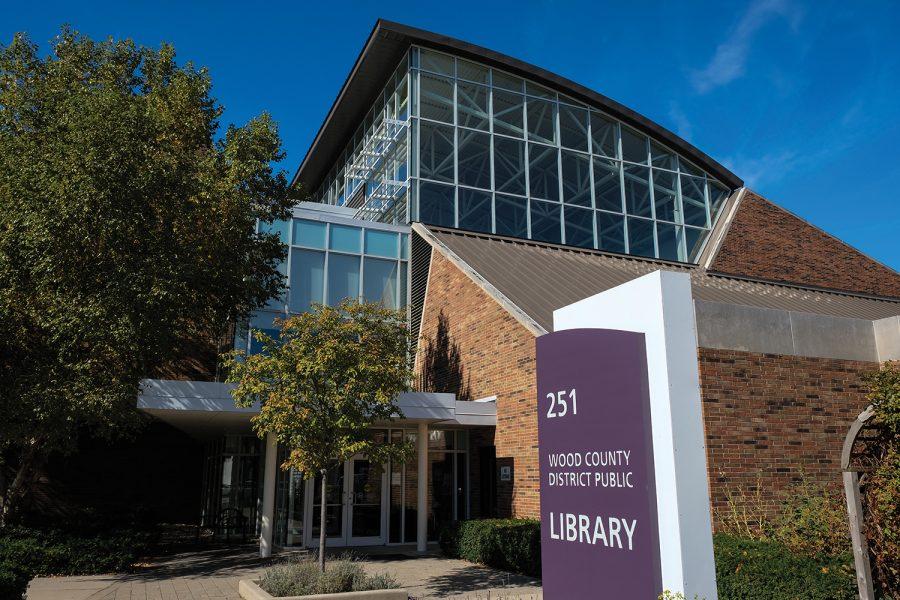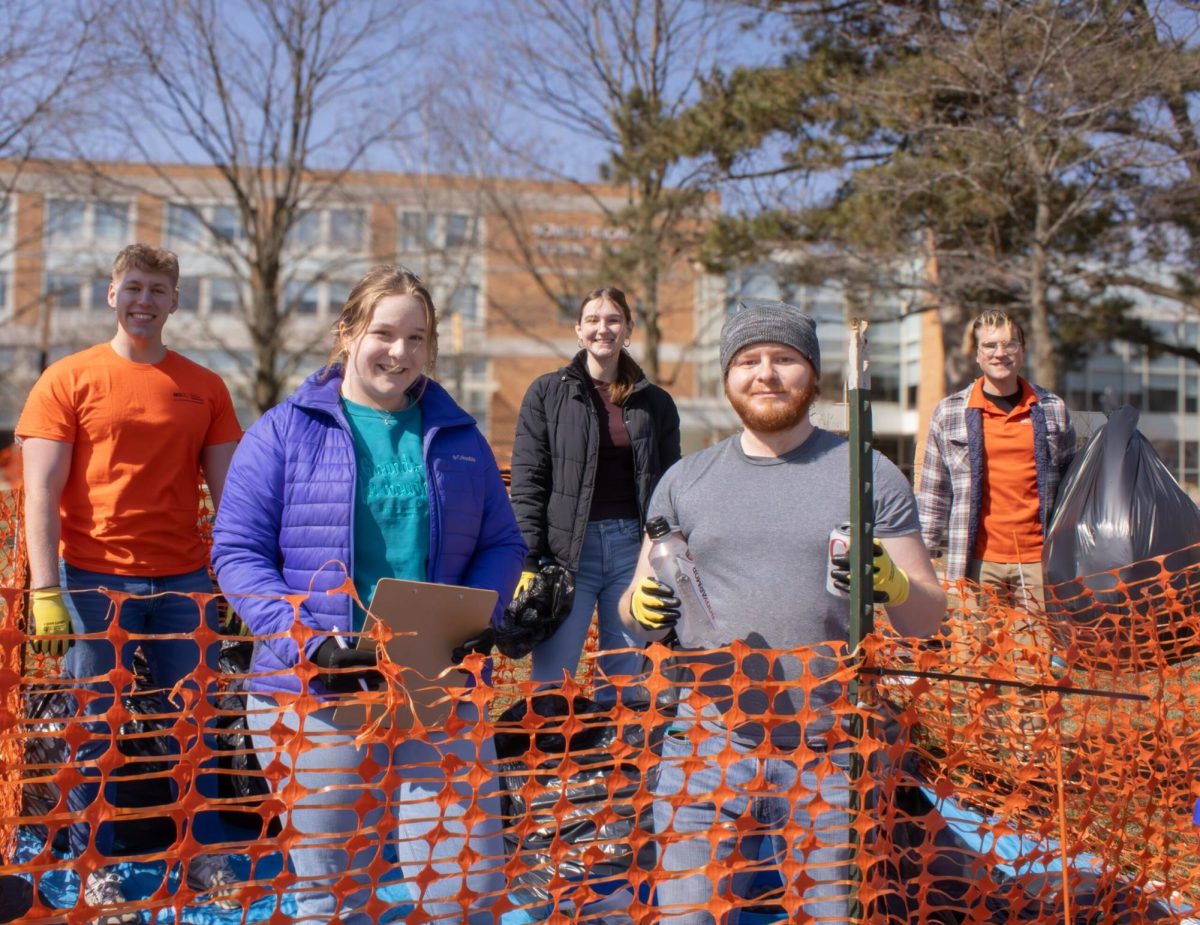Bowling Green authorities are issuing fewer citations for human trafficking related crimes than ever, despite nearby Toledo ranking highly nationally for sex trafficking issues.
Mary Krueger, founder of The Cocoon and director of the Women’s Center at Bowling Green State University, said she has no reason to believe, however, that northwest Ohio has a worse or lesser problem with sex trafficking than any other part of the world. Instead, it’s based on awareness.
Heather Paramore, the sex trafficking survivor advocate at the Cocoon, said while Toledo’s problems do stretch to Bowling Green because of Interstate 75, the advocates and authorities in both cities do a good job taking care of sex trafficking issues.
“Toledo is ranked anywhere between two and five [in the world] depending on what year it is, but it’s not on worst problem with trafficking. It’s on number of convictions, arrests, recoveries,” Paramore said. “So it’s not necessarily that Toledo has the worst problem with trafficking. It’s more so that we’ve been doing a better job of making arrests and prosecutions.”
Krueger said a lot of that is due to Celia Williamson, an international leader in raising awareness of sex trafficking, who is located in Toledo.
“Because of her work, Toledo and northwest Ohio in general have paid more attention to trafficking, especially sex trafficking than other parts of the country,” Krueger said. “I think that we have been on the leading edge of getting people to pay attention.”
Paramore said there are a lot of advocates and programs in the area, which allows people better ability to spot and report trafficking crimes in Toledo areas, and police are able to make more convictions because of it.
Jamie Webb of the Wood County Sherriff’s Office said numbers of convictions in the Bowling Green area are actually lowering despite a rise elsewhere. Publicity efforts such as trainings, awareness information offered to gas station and restaurant workers, compact mirrors with a toll free number and other anti-trafficking partnerships in Lucas and Hancock Counties have helped in decreasing the number of people committing trafficking crimes in the area.
The Sheriff’s Office enacted human trafficking enforcement operations in 2010, which all started in response to a teenage girl being approached with a proposition to sell sex at a truck stop in North Baltimore.
“Our office took a proactive approach to it,” he said.
The office started by placing undercover female officers at truck stop and catching offenders who approached them. As they learned more about human trafficking in the area, they started posting and responding to posts on Backpage. Both female and male officers took part in these operations, which would normally require meeting up in hotel rooms. After that, the office continued regular enforcement operations.
At the first bust in North Baltimore, the Sherriff’s Department made five or six arrests in the first hour alone, and on April 20, 2015, seven traffickers were arrested in one day. Before it closed, the Victory Inn on East Wooster was a major hub for trafficking. It was close to Intestate 75 making for “easy on, easy off,” Webb said.
While the Wood County Sherriff’s Office made over 100 trafficking and sex work-related arrests in 2014, Webb said the numbers have dropped each year since, reaching as low as the mid 20s last year—all while conducting the same enforcement operations.
“If they have knowledge of our area, they stay away,” he said.
Paramore and other advocates don’t keep track of the numbers of clients they see in a specific time period, partly because it’s difficult with labeling. Some women use the Cocoon’s services for sexual assault or domestic abuse but don’t recognize their circumstances as trafficked.
“A lot of times people will think of…this dichotomy of sex trafficking versus sex work, or they’ll think either you’re doing it because you don’t choose to, or you’re doing it because you do choose to. And that’s really not reflective of what reality is,” she said. “Problems that we’ve been having since, well before our country was even started, we’re now labeling as human trafficking.”
The legal definition of sex trafficking is when someone is convinced to sell sex through force, fraud or coercion. Sex work on the other hand is when someone freely chooses to sell sex with the condition that they have other options for occupation.
“Early on it was oh, it’s just a victimless crime. It’s two consenting adults. No it’s not,” Webb said.
The gray area is the middle ground termed engaging in prostitution, when individuals choose to join “the life” but do so because they don’t have any other options. They may not have a high school diploma, have a severe drug addiction issue or have been previously trafficked and gotten out but don’t know how to support themselves in freedom, Paramore said.
“Because of all these blurred lines, we’ve had trouble identifying people as trafficked,” Paramore said.
Krueger said one of the main differences is whether someone can freely choose to stop selling themselves.
Another part of the labeling issue is a result of the complexity of trafficking and those involved.
“In reality a pimp can be a friend that may be a female, maybe a boyfriend,” Webb said, distinguishing from the nice car, gold chain wearing pimp in popular culture.
Pimps are not always men, Paramore said. There is a category between victim and trafficking, called a bottom, who is a woman that has worked for the pimp for a long time and earned his trust.
Krueger said she would estimate over half of the trafficking victims in this area are minors or were minors when the trafficking began. In these cases, pimps often feed off the vulnerability of their youth.
“Domestic sex trafficking tends to be people focusing on preying on…underage minors who are vulnerable,” she said. “They’re vulnerable because of their age and because of their lack or life experience.”
Slightly older males will convince underage girls that they care before eventually asking for favors for other men.
“It doesn’t start out with the forced sex with 10 guys a night. It leads up to that,” Krueger said. “It starts out thinking a cool older guy thinks I’m pretty.”
Often times, trafficking is also a family business, Paramore said. It may be a father-son operation, or parents have even trafficked their children. Others become close friends or intimate partners of vulnerable women, showing them they care before coercing them into sexual acts.
“Everyone kind of gets this image in their head of being kidnapped and taken across sees and taken that way,” Paramore said “While that does happen, that’s not typically what we see a lot in the U.S. International rings…are more complex systems, so they’re a lot harder to break up.”
Calling the trade “modern day slavery” is accurate according to Webb, and Paramore said trafficking and being in the life is a 24/7 job. The term 24/7 actually came from trafficking and sex work culture.
Now, trafficking is largely online, Krueger said, and it adds another layer to dehumanizing victims.
“You’re already sort of dehumanizing somebody if you’re buying them, unless they want to be bought, but it’s even more dehumanizing because you’re not even sitting here in front of me,” she said. “You’re just a picture on the screen and maybe you’re just a body on the screen without a face attached to it.”
In addition to much larger cyber units, Krueger said the world needs huge social change.
“It starts with how we raise our children, how we talk about human beings-not as objects to be purchased,” she said.













